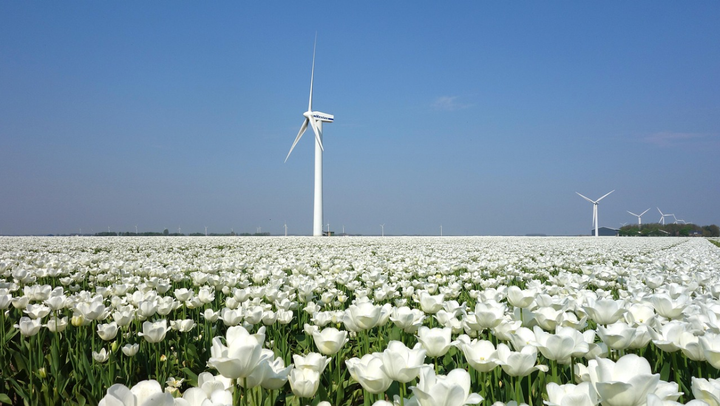Do we still live in a time of political populism?

Anika Khanna
What happens when people feel their voices are not being heard by the political and economic elites? The answer, it seems, is political populism. In recent years, we have seen a growing number of political movements that claim to represent the interests of regular people against the established driving forces. These movements are often characterised by a distrust of traditional political institutions and are fuelled by the desire for direct democracy and citizen participation in decision-making. Frequently, we see these associated with nationalist and anti-immigrant sentiments, as people seek to protect their communities alongside identities in the face of rapid social and cultural change. Yet, how complex are the causes and consequences of global populism and is it still a popular idea today? By engaging with the intricate and often contradictory dimensions of populism we can better understand the challenges and opportunities of democratic policies in the 21st century.
Populism has a complex history dating back to the 19th century and its speculated rise can be currently attributed to a variety of factors including economic inequality, political dissatisfaction, and the spread of misinformation through social media. Often, ‘populist leaders’ tap into the frustration and anger of the masses and deliver simple solutions to complex problems; they tend to demonise certain groups in this process, such as immigrants or political elites, and promote an ‘us versus them’ mentality. Recently, this movement gained global traction following the election of Donald Trump in the United States which led to the rise of far-right parties in Europe as leaders espoused nationalist and protectionist policies in promise to put their country first and to protect the public from external threats. Similarly, in Brazil, President Jair Bolsonaro became renowned for his 2019 appeal to working classes through consistent attacks towards the media, the judiciary, and other institutions that he sees as part of a corrupt and out-of-touch establishment. The lines, “The forgotten men and women of our country will be forgotten no longer. Everyone is listening to you now” from Trump’s inauguration speech or “I am the only candidate who represents the real Brazilian people” from Bolsonaro’s presidential campaign outline only two from multiple populist ideas. A clear sense of inclusion and pride outlines both alongside multiple other populist policies that appeal to the current anxiety of common people: globalisation. In an increasingly competitive world, the promise of protected jobs and wages, nationalising industries and limiting free trade make all the difference for populist support and appeals to voters who feel disenfranchised or left behind by global developments.
Other populist figures have capitalised on the fragmentation of political systems as traditional parties lose credibility and support, leaving a void that populist movements have been able to fill. In Europe, the current refugee crisis and consistent terror attacks have financed the rise of far-right populist parties by calling for stricter border control and anti-immigrant sentiment to undermine mainstream political parties. This mobilises support by providing scapegoats- whether pushed by anti-colonial rhetoric such as in Africa and Asia or anti-globalisation ideas such as in Hungary or Poland- populism relies on social insecurity and inequality. While often associated with negative outcomes, populism can also be a catalyst for political change as movements challenge current status quo and push for reforms. For example, the ‘Me Too’ movement, which became popular in 2017, was founded as a way to support and empower survivors of sexual assault- particularly young women of colour from low-income communities. This challenged the power of influential men in industries such as entertainment, media and politics to promote gender equality and social justice. As millions of people went online to share their stories, the movement helped promote greater awareness and understanding of the prevalence and impact of sexual violence. Not limited to the United States, the ‘Podemos’ movement in Spain was developed in 2014 in response to the economic crisis and political corruption. Mainly, it called for an end to austerity policies and the influence of big business in politics which allowed the party to win 8% of the vote in the 2014 European Parliament elections. As such, populist movements have presently appealed to people’s emotions and sense of identity as populist leaders portray themselves as outsiders who are not beholden to the interests of the political establishment. Especially nowadays, in more liberal times, political populism can seem more trustworthy and responsive to the needs of ordinary people and many turn to it to voice beneficial policies towards respective communities.
Whilst political populism has been a powerful force in recent years, there are also reasons to suggest it may be in decline. One significant factor is the growing awareness of the movement’s negative consequences such as the rise of authoritarianism, xenophobia and political polarisation. In some incidents, political populism has led to the erosion of democratic norms and institutions and is often labelled a power-hungry movement as populist leaders seek to undermine checks and balances. This is combated by the ever-increasing use of social media which makes it easier for people to access a wide range of information and perspectives, which makes it difficult for populist figures to control narratives. In turn, studies have shown that the number of populist leaders has declined by over a third since 2019 as more diverse populations become less receptive to populist rhetoric and are more inclined to progressive policies such as social justice and economic equality. An example of this is in Italy where the far-right League Party suffered major defeats in local elections, losing control of several key cities. In France, Marine Le Pen’s National Front party also witnessed declining support with Emmanuel Macron’s centrist party winning decisive victories since the 2017 presidential elections.
Furthermore, the COVID-19 pandemic pushed this by highlighting the importance of science, expertise and evidence-based policymaking. Many populist leaders who downplayed the severity of the pandemic or promoted unproven treatments have faced criticism and resistance from public health officials alongside civil society groups. Longer-term, this exposed the weaknesses of some populist policies as sometimes short-sighted and counterproductive as they prioritise the interests of a particular group and therefore fail to address the root causes of social and economic problems.
This has frequently led to economic instability, social unrest and political polarisation that funds a cycle of discontent as people become increasingly frustrated with a lack of process and change from populist movements. Instead, we can see increased support for political movements that challenge the dominance of populism. This includes progressive movements that promote policies such as universal healthcare, free education and environmental protection. The recent universal health systems provide medical coverage to all citizens that are often funded through taxes such as the NHS in the UK or the NCMS in China; these aim to provide comprehensive and affordable healthcare. Another is the rise of grassroots movements which are bottom-up forms of activism that are fuelled by a desire for social change and are characterised by their inclusivity as well as an emphasis on direct action. A popular example of this is the BLM movement of 2013 which aims to address systematic racism and police brutality via protests, civil disobedience and speeches. This has helped promote greater accountability and transparency in law enforcement with the George Floyd Justice in Policing Act passed in 2021 that creates a national registry of police misconduct, banning chokeholds and no-knock warrants. As seen, both other movements are both effective and widespread with equal- if not more- public engagement compared to political populism. But is this enough to overrun political populism as a whole?
Overall, political populism is a multifaceted phenomenon that ranges on both the left and right of the political spectrum with movements ranging from extreme populism to slight. It can be argued that the populist movement is still highly prominent in recent roles of democracy, social justice and political accountability despite its association with authoritarianism and marginalisation and is perhaps in gradual decline. From Brexit to Trump, from Bolsonaro to Modi, populism is clearly reshaping the political landscape and challenging the established order. While its ethics in some cases are still debatable, the populist movement can be interpreted as a clear backlash against globalisation and the perceived loss of national identity and culture. Whilst giving a voice to citizens, populism aims to create a sense of community to address issues such as income, inequality, corruption and political polarisation. Yet, is it advisable to attempt to tackle such large forces beyond their control? The outcome, unfortunately, of many movements has promoted xenophobia, racism and other forms of prejudice that highlight the dangerous, divisive undertones of populism. In the long term, populism will rest upon the effectiveness of political institutions and the ability to address the underlying causes of inequality. In light of such, it is clear that populism is an important force in contemporary politics today but the real question remains- can it ever be a solely positive movement? The future of populism, it seems, remains undecided.




Comments ()